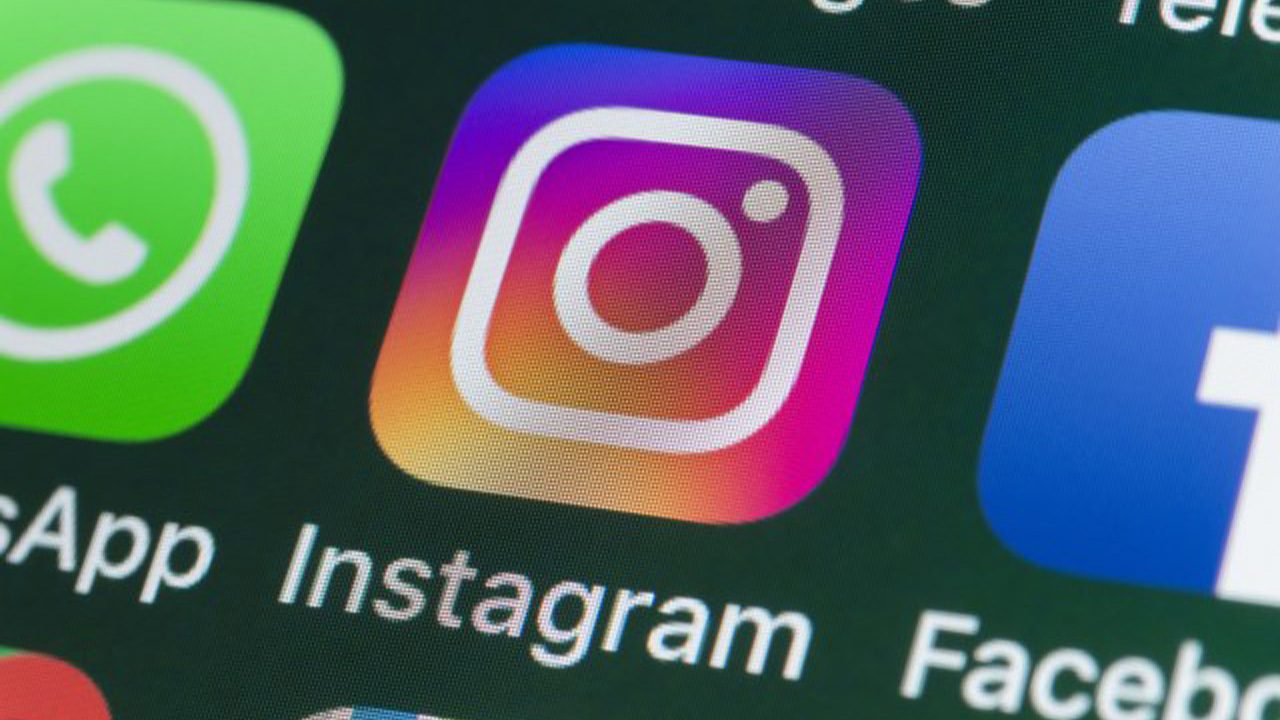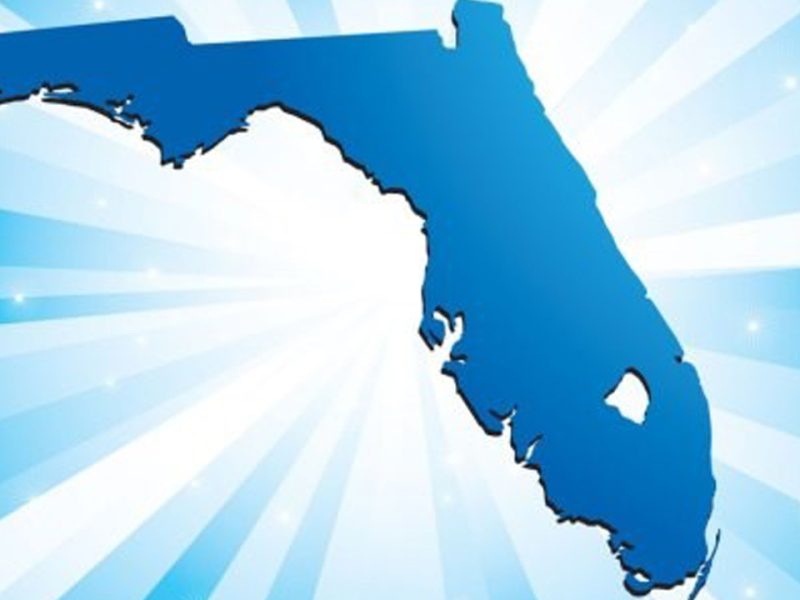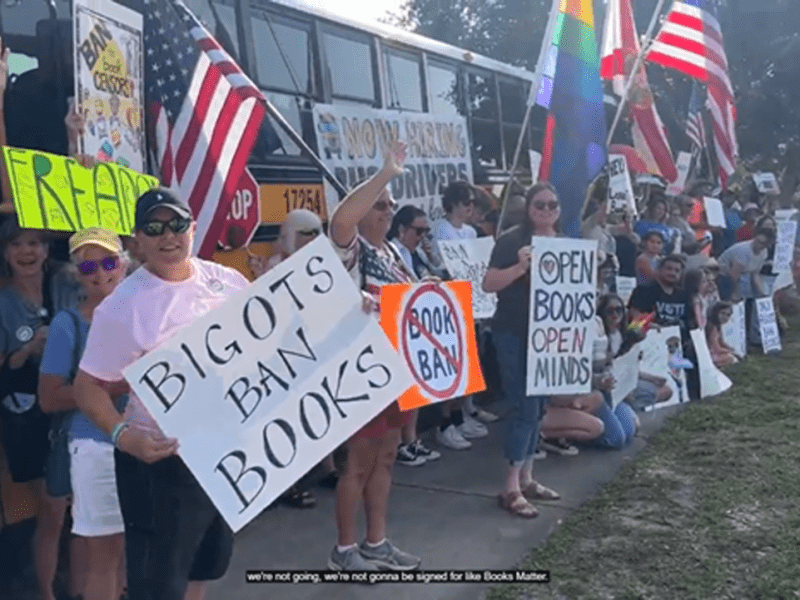A social media ban for kids? Here’s why courts likely would stop that in Florida
South Florida Sun Sentinel | By Lawrence Mower, Tampa Bay Times | January 25, 2024
TALLAHASSEE — To protect the mental health and safety of kids, state lawmakers are moving ahead with a first-of-its kind proposal that would reshape how nearly every Floridian uses the internet.
Kids under 16 would be forbidden from being on social media. And every Floridian who wants to use social media would have to submit some sort of ID, or submit to a facial scan, to prove their age.
The legislation, House Bill 1, is a top priority of House Speaker Paul Renner, R-Palm Coast, who believes social media’s effects on children is akin to opioids or cigarettes. The bill passed the House on Wednesday and has wide bipartisan support.
But if the idea of showing an ID to use social media doesn’t sound appealing, don’t worry.
It’s unlikely to ever take effect.
The idea is likely a violation of the First Amendment and other parts of the Constitution, federal judges have ruled in stopping similar legislation passed in other states. One judge called Arkansas’ ban — which is less restrictive than Florida’s — “a breathtakingly blunt instrument for reducing social media’s harm to children.” A judge in Ohio called that state’s version “troublingly vague.”
Judges and free speech advocates point to a long line of Supreme Court decisions striking down similar limits on books, video games and the internet.
“I’ve never seen a blanket ban on access to constitutionally protected speech like this ever upheld by a court,” said Bob Corn-Revere, a 40-year lawyer on First Amendment issues who is now chief counsel for the Foundation for Individual Rights and Expression.
“The state doesn’t just get to drop a curtain and say, ‘You can’t read anything unless we say you can,’” he added.
Renner has acknowledged the case law is “challenging,” but that they’re avoiding legal hurdles by targeting “only those platforms that we know are highly addictive and also highly damaging.”
But unless the U.S. Supreme Court decides to overturn decades of past decisions on the First Amendment, that argument won’t hold up, advocates say.
Kids have First Amendment protections
Even critics of the legislation say its goal is worthy: reverse the increase in teen depression and suicides since 2010, which is around the time smartphones became popular.
Whether social media is the cause of that rise is a matter of intense debate. The data is far from conclusive, and other countries where social media is popular haven’t seen increases in teen depression or suicides.
Under the Florida bill, companies would have to hire third-party programs to verify users’ ages. Lawmakers said it would be more robust than simply entering a birth date. Users would have to submit a government ID, a credit card, or submit to a facial scan, and the information would have to be deleted immediately after verification.
Florida’s bill is largely similar to other states’, except it would not allow parental consent, making it the strictest such legislation in the country.
None of those bills in other states, including Utah, Arkansas and Ohio, have taken effect because federal judges have either issued injunctions blocking them or lawmakers have delayed implementation.
The First Amendment has broad protections on speech, and government efforts to restrict it — even in the name of kids’ safety — have been repeatedly struck down by federal judges and the U.S. Supreme Court, those judges noted.
Florida lawmakers acknowledged that HB 1 would prevent kids from viewing positive material online. That alone would pose a problem to the court, which has ruled that “only in relatively narrow and well-defined circumstances” may government block dissemination of protected speech to minors.
When California in 2005 tried to require parental supervision for kids to buy video games, Supreme Court justices led by Antonin Scalia struck the idea down because the games were protected speech.
“No doubt a State possesses legitimate power to protect children from harm, but that does not include a free-floating power to restrict the ideas to which children may be exposed,” Scalia wrote.
When Congress in 1996 passed the Communications Decency Act to protect kids from explicit material on the internet, that too was ruled unconstitutional.
“The governmental interest in protecting children does not justify an unnecessarily broad suppression of speech addressed to adults,” justices wrote.
Florida’s bill could also violate adults’ free speech. Federal judges have written or ruled against requiring people to submit personal information — such as age verification — to access the internet at least five times. As one judge put it in a 2008 decision, the idea would force users to “relinquish their anonymity to access protected speech.”
Gov. Ron DeSantis, who has not weighed in on the bill, said during his failed presidential campaign that banning anonymous speech online “is dangerous and unconstitutional.”
NetChoice, a coalition of social media companies including Meta, X and TikTok, has challenged other states’ laws and has spoken out against Florida’s proposal.
“It’s the government forbidding access to information from Florida teenagers and all Floridians writ large,” said Carl Szabo, the organization’s vice president and general counsel. “It’s the type of thing you see in authoritarian regimes, not free states like Florida.”
What is a ‘social media’ platform?
Facebook and Instagram are largely considered to be social media. But what about YouTube, which studies show is by far teens’ most popular “social media” app? Or Nextdoor, Snapchat and Donald Trump’s Truth Social?
The Republican sponsors of HB 1 this week refused to name the companies that would have to adapt to the bill.
Instead, they pointed to the bill’s definition of “social media platform,” a 26-point test that includes platforms that “track the activity of the account holder,” and in which users can post content and view others’ content.
But many of the definitions are vague. The bill excludes platforms in which the “predominant or exclusive function” is emailing, news, online gaming, “edutainment” or sending messages — which would presumably exclude Snapchat, the fourth-most popular social media app among teens, from the ban.
And it has another vague definition: It would apply to any platform that uses “addictive, harmful, or deceptive design features, or any other feature that is designed to cause an account holder to have an excessive or compulsive need to use or engage with the social media platform.”
Other states have similarly struggled to define social media companies. The federal judge in the Arkansas case noted that the state’s expert and its lawyer couldn’t agree on whether Snapchat was included in the ban.
Pointing to decades of case law, the Arkansas judge wrote that companies can’t be left to choose “between risking unpredictable and arbitrary enforcement” and paying for “costly age-verification requirements.”
“Such ambiguity renders a law unconstitutional,” the judge wrote.
Advocates for free speech say HB 1 has little chance of becoming reality.
“What is the point of passing this?” asked Howard Simon, interim executive director of the American Civil Liberties Union of Florida.
“It’ll be tied up in courts as an assault on the First Amendment for years, and maybe, ultimately, will never see the light of day.”






